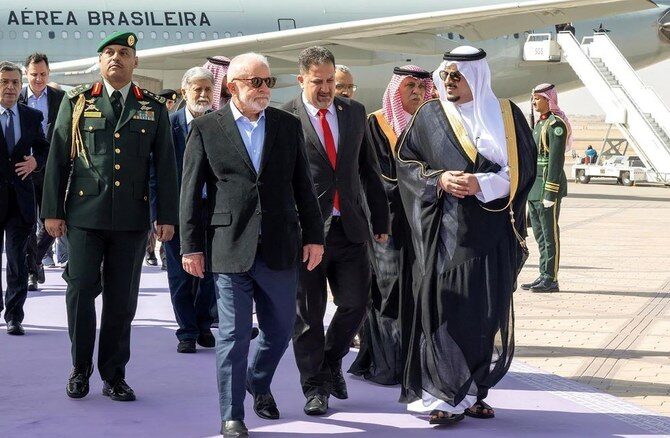SAO PAULO ( WNAM Monitoring): The visit of Brazil’s president to Riyadh with a delegation of ministers and businesspeople showed that he wants to strengthen ties with Saudi Arabia and is counting on its participation in projects, especially those involving green energy.
After an event that gathered Brazilian and Saudi authorities and business leaders , Luiz Inacio Lula da Silva invited the Kingdom to be “Brazil’s partners” in the energy transition that has been taking place in the South American nation.
“If Saudi Arabia is the most important country in the production of oil and gas, in 10 years from now Brazil will be called ‘the Saudi Arabia of green energy’,” Lula said in his speech.
Mining and Energy Minister Alexandre Silveira presented in the same meeting an overview of Brazil’s energy endeavors, and initiatives in which Saudi investors can take part.
The previous day, he met with Saudi Energy Minister Abdulaziz bin Salman and signed a memorandum of understanding aimed at improving cooperation between the two nations.
The MoU encompasses projects in various fields, including oil and gas, electricity, energy efficiency, petrochemicals, hydrogen, renewable energy and the circular carbon economy. The agreement also comprises academic partnerships for joint research involving energy.
“We are in Saudi Arabia demonstrating Brazilian leadership in the energy transition and seeking to further expand our relationship with the country,” Silveira said, adding that one of the visit’s goals was to attract investors.
The Saudi government had already announced in 2019, during former President Jair Bolsonaro’s tenure, a plan to invest $10 billion from its sovereign fund in Brazilian projects. Many of them are expected to be related to green energy and infrastructure.
“Brazil has great growth potential in all segments of renewable energies. Solar energy, wind power and biomass energy already make up a significant part of the Brazilian total energy production, but they can reach a much higher level,” Jose Roberto Simoes Moreira, an engineering professor who coordinates the University of Sao Paulo’s renewable energy program, told Arab News.
In 2022, almost half of Brazilian energy came from renewable sources. Solar and wind power were responsible for 90 percent of the expansion in energy production in 2023.
“Those energy sources were responsible for keeping the system safe and functional. We’ve been operating near the limit. Without the expansion in renewable energy, Brazilians would have problems,” Simoes Moreira said.


